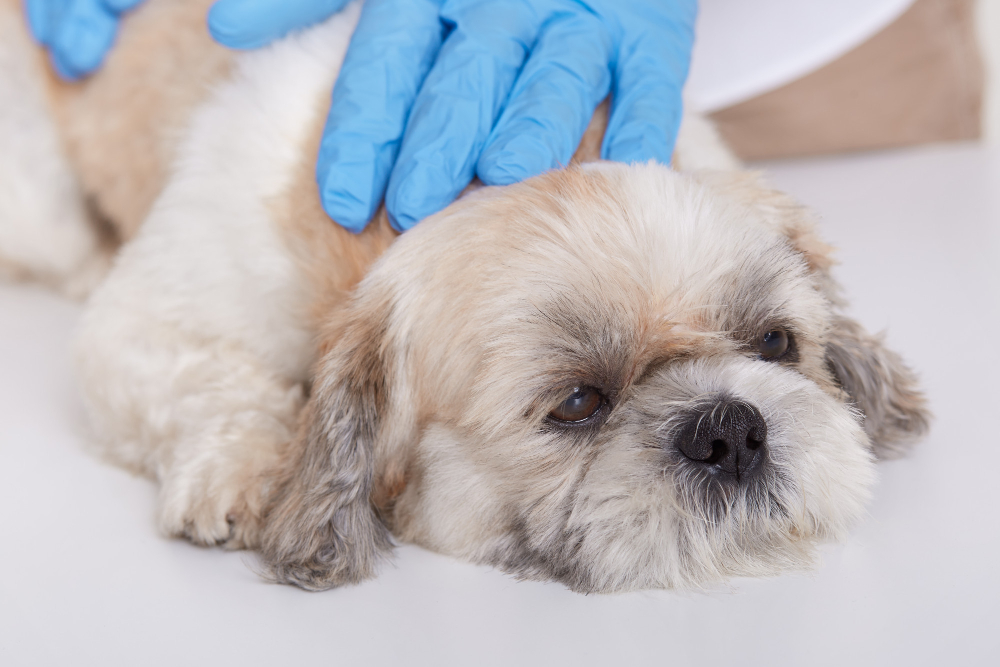Preparing Your Heart: Coping with Anticipatory Grief

Preparing Your Heart: Coping with Anticipatory Grief

Making the decision to say goodbye to a beloved pet is one of the most difficult choices pet parents face. The period between scheduling an appointment for in home euthanasia and the actual day can feel overwhelming, filled with a unique type of grief that begins before the loss occurs. This anticipatory grief is completely normal, yet it often catches pet owners off guard with its intensity.
Understanding how to navigate these emotions can help you find peace during this challenging time and ensure your pet's final days are filled with love and comfort. Whether you're facing this decision now or want to prepare for the future, learning healthy coping strategies can make an enormous difference in your emotional well-being.
Let's explore what anticipatory grief looks like and discover practical ways to manage these complex emotions while honoring the special bond you share with your furry family member.
Understanding Anticipatory Grief
Anticipatory grief is the sadness, anxiety, and emotional pain you experience before an actual loss occurs. When you schedule an appointment for your pet's peaceful passing, your mind begins processing the reality of their absence even though they're still physically present with you.
This type of grief can manifest in numerous ways. You might find yourself crying unexpectedly while watching your pet sleep, feeling guilty about the decision you've made, or experiencing physical symptoms like difficulty sleeping or loss of appetite. Some pet parents report feeling emotionally numb or detached, while others become hypervigilant about their pet's every movement and breath.
The intensity of anticipatory grief often surprises people. You may wonder why you're grieving so deeply when your pet is still alive. This reaction is completely natural and demonstrates the depth of your love and connection. Your emotional system is already beginning to process the magnitude of your upcoming loss, which shows how much your pet means to you.
Creating Meaningful Final Moments
One of the most therapeutic ways to cope with anticipatory grief involves focusing on creating beautiful, meaningful experiences with your pet during their remaining time. These moments become precious memories that will comfort you long after they're gone.
Consider planning special activities your pet has always enjoyed. This might include a gentle car ride to their favorite park, sharing a small portion of their favorite human food (with veterinary approval), or simply spending quiet time together in their preferred sunny spot. The key is choosing activities that align with your pet's current energy levels and physical capabilities.
Many pet parents find comfort in creating keepsakes during this time. You might take paw prints in clay, commission a custom portrait, or compile a photo album of your favorite memories together. These tangible reminders help preserve the love you share and provide comfort during the grieving process.
Photography sessions, whether professional or personal, can capture your pet's unique personality one final time. Focus on their distinctive features—the way their ears perk up when they hear your voice, their favorite sleeping position, or their gentle eyes. These images become treasured keepsakes that celebrate their life.
Building Your Support Network
Anticipatory grief can feel isolating, especially when well-meaning friends and family don't fully understand the depth of your pet bond. Building a strong support network becomes crucial during this emotional period.
Reach out to other pet parents who have faced similar decisions. Online communities and local support groups provide spaces where your feelings are understood and validated. Sharing your story with others who have walked this path can provide immense comfort and practical advice for navigating the days ahead.
Don't hesitate to lean on close friends and family members, even if they haven't experienced pet loss themselves. Sometimes simply having someone listen without judgment can provide significant emotional relief. Let them know specific ways they can support you, whether that's bringing dinner, helping with pet care tasks, or simply being available for phone calls when grief feels overwhelming.
Professional support can also be invaluable. Pet loss counselors and grief therapists understand the unique aspects of anticipatory grief and can provide specialized coping strategies. Many veterinary practices, including those offering in home euthanasia services, can recommend qualified professionals in your area.
Managing Daily Life and Routines
Anticipatory grief can disrupt your normal routines and make everyday tasks feel impossibly difficult. Establishing gentle structure while remaining flexible with yourself becomes essential for maintaining your well-being.
Try to maintain basic self-care practices, even when they feel challenging. This includes eating regular meals, staying hydrated, and getting adequate sleep. Your body needs proper nutrition and rest to cope with the emotional stress you're experiencing. If cooking feels overwhelming, consider simple meals or ask friends to help with food preparation.
Work and other responsibilities may feel less important during this time, and that's okay. If possible, communicate with your employer about what you're facing. Many people understand the significance of pet loss and may offer flexibility in your schedule or workload.
Consider adjusting your pet's routine to maximize comfort and quality time together. This might mean working from home more often, rearranging your schedule to spend extra time together, or modifying walk times to avoid crowded areas if your pet prefers quieter environments.
Processing Guilt and Difficult Emotions
Anticipatory grief often comes with complex emotions that can be difficult to understand or accept. Guilt frequently surfaces as pet parents question whether they're making the right decision or worry about the timing of their choice.
Remember that choosing in home euthanasia often represents the ultimate act of love. You're prioritizing your pet's comfort and dignity over your own desire to keep them with you longer. This selfless decision, though heartbreaking, prevents unnecessary suffering and ensures their final moments are peaceful and surrounded by love.
Anger is another common emotion during this time. You might feel frustrated with the situation, angry at the disease or condition affecting your pet, or upset with yourself for various reasons. These feelings are normal parts of the grieving process and don't reflect poorly on your character or your love for your pet.
If overwhelming emotions persist or interfere significantly with your daily functioning, consider reaching out to a mental health professional who specializes in grief counseling. They can provide additional tools and strategies for managing intense emotions during this difficult period.
Preparing for the Final Day
As the appointment approaches, practical preparation can help reduce anxiety and ensure the experience aligns with your wishes for your pet's final moments.
Discuss your preferences with the veterinary team in advance. Many services offering in home euthanasia in Jupiter, FL provide detailed consultations to address your questions and concerns. Understanding the process, timeline, and what to expect can help reduce anxiety and allow you to focus on being present with your pet.
Consider who you want present during your pet's final moments. Some families prefer to have all members present, while others choose a smaller, quieter gathering. There's no right or wrong choice—select the option that feels most comfortable for your family and your pet.
Think about aftercare arrangements ahead of time. Whether you choose cremation, burial, or another option, making these decisions in advance prevents additional stress during an already emotional time.
Finding Peace in Your Decision
The anticipation period before saying goodbye to your beloved companion challenges even the strongest hearts. Remember that experiencing anticipatory grief doesn't mean you're dwelling on loss—it means you're processing one of life's most significant transitions with the full depth of your love.
Your pet has been blessed to spend their life surrounded by such devoted care and affection. The fact that you're struggling with this decision demonstrates the incredible bond you've shared and the love that will continue even after they're gone.
If you're considering in home euthanasia in Jupiter, FL, contact Rover Veterinary Care today for more information. Their compassionate team understands the emotional complexity of this decision and provides supportive guidance throughout the entire process, helping ensure your beloved pet's final moments are filled with peace, dignity, and love.
